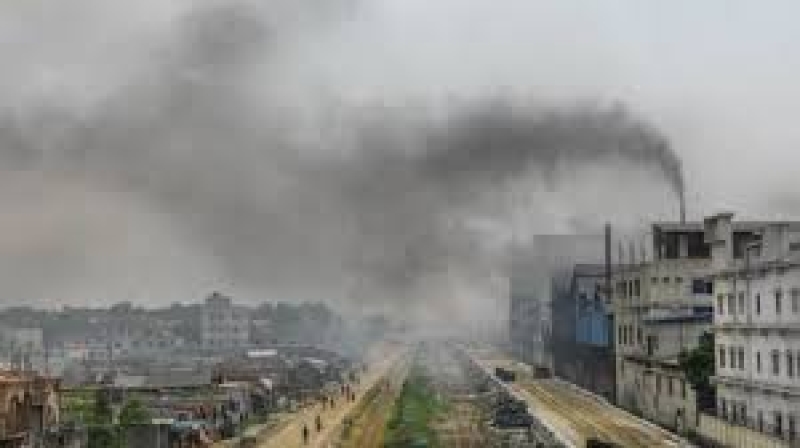- Israel withdraws from corridor splitting Gaza into two |
- Trump says he will announce raft of new trade tariffs |
- TCB trucks to sell edible oil at Tk100 a liter from Feb 10 |
- Families of July Uprising martyrs meet Chief Adviser |
Dhaka’s air turns ‘very unhealthy’ Sunday morning

Dhaka, the overcrowded capital city of Bangladesh, has ranked the third on the list of cities with the worst air quality with an AQI score of 201 at 8:55am this morning (February 9, 2025).
Today’s air was classified as 'very unhealthy', referring to a serious health risk to residents, according to the AQI index.
Though Saturday’s air quality was marked as unhealthy with an AQI score of 177, the air turned very unhealthy further on the first working day of the week.
When the AQI value for particle pollution is between 50 and 100, air quality is considered ‘moderate’, usually sensitive individuals should consider limiting prolonged outdoor exertion, between 101 and 150, air quality is considered ‘unhealthy for sensitive groups’, between 150 and 200 is ‘unhealthy’, between 201 and 300 is said to be 'very unhealthy', while a reading of 301+ is considered 'hazardous', posing serious health risks to residents.
India’s Delhi, Pakistan’s Lahore and Democratic Republic of the Congo’s Kinshasa cities respectively occupied the first, second, and fourth spots on the list, with AQI scores of 215, 212 and 188 respectively.
The AQI, an index for reporting daily air quality, informs people how clean or polluted the air of a certain city is and what associated health effects might be a concern for them.
The AQI in Bangladesh is based on five pollutants: particulate matter (PM10 and PM2.5), NO2, CO, SO2, and ozone.
Dhaka has long been grappling with air pollution issues. Its air quality usually turns unhealthy in winter and improves during the monsoon.
As per World Health Organization (WHO), air pollution kills an estimated seven million people worldwide every year, mainly due to increased mortality from stroke, heart disease, chronic obstructive pulmonary disease, lung cancer, and acute respiratory infections, reports UNB.

